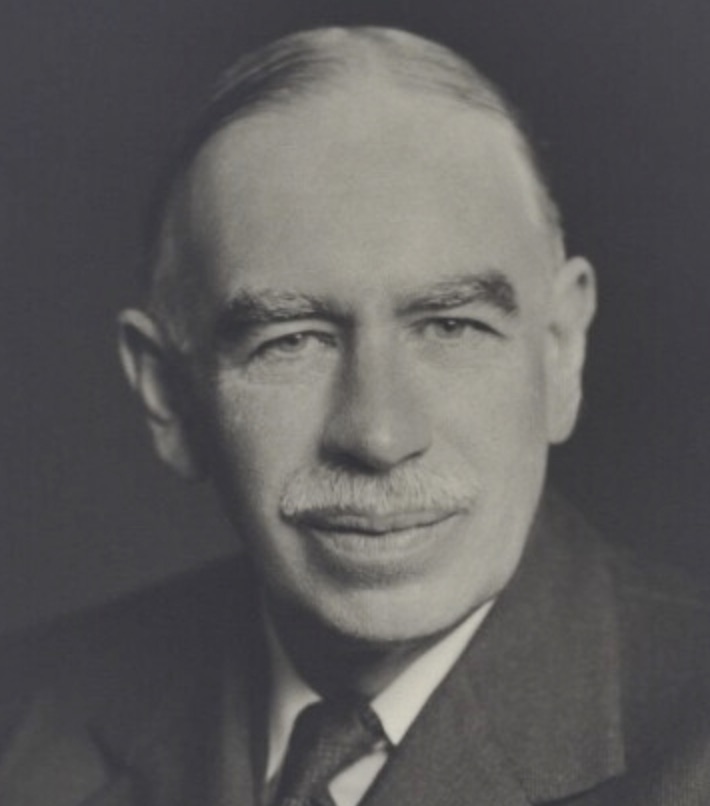
John Maynard Keynes was born on June 5, 1883, in Cambridge, England, into an academic family. His father taught logic and political economics at University of Cambridge and published a textbook titled Formal Logic. His highly educated mother was a social reformer. During his early years, most of John’s learning was from home-schooling, though he had enrolled at Perse School Kindergarten at 7 years of age. After Kindergarten, he was enrolled at St. Faith’s preparatory school where his academic performance was not observed to be exceptional until he reached 11 years of age. At that point, his giftedness was observed by the headmaster who stated, “He is head and shoulders above all the other boys in the school.”
In 1895, when John was 12 years old, he sat for the entrance examinations to the prestigious Eton Boys School. He stood tenth out of the 20 boys who were accepted, but stood first in mathematics. John performed well at Eton, winning the Senior Mathematics Prize in 1899 and 1900. In 1902, he was awarded a scholarship to King’s College, Cambridge where he would major in mathematics and classics. During his undergraduate years, he was inspired by economist Alfred Marshall to shift his focus into economics and political science.
In 1905, Keynes graduated from Cambridge with a B.A. and four years later, in 1909, earned his M.A. He then took a civil service job with the India Office in London, where he studied the currency of India, leading, in 1913, to his first publication, Indian Currency and Finance. Shortly after this publication, he returned to Cambridge where he taught economics. However, with the outbreak of World War I, he returned to the civil service in the Department of the Treasury, where he was responsible for suggesting ways of conserving Britain’s supply of foreign currencies.
After the end of World War I, in 1919, Keynes accompanied Britain’s Prime Minister David Lloyd George to France as his economic advisor at the Versailles Peace Conference. At that Conference he observed the crushing reparations imposed on Germany by the victorious nations. Recognizing that the humiliation of Germany would have long-term implications, he resigned his position. On returning to Britain, he embarked on expressing his opposition to what he perceived as Draconian measures, and within a few months completed his seminal work, The Economic Consequences of the Peace. This scathing criticism of the Treaty of Versailles detailed the economic implications of the reparations and concluded that they exceeded what a defeated Germany could ever pay.
Keynes was vilified by members of the British government who felt he had betrayed those who had invited him to Versailles, but his book brought widespread approval from his colleagues at Cambridge. While Keynes supported the economic principles of laissez-faire, he advocated for some government involvement in managing economic growth. For example, in his General Theory of Employment, Interest and Money, published in 1936 at the depth of the Great Depression, he argued that we should not expect capitalism to produce full employment and we must use government to stimulate the economy and produce full employment by increasing government spending and decreasing taxes.
In 1937 John Maynard Keynes suffered a severe heart attack. Two years later, though not completely recovered, he returned to teaching at Cambridge, where he wrote three articles on the finance of war. In 1942, Keynes was appointed to the House of Lords where he occupied a Liberal bench. He served for 4 years until April 21, 1946, when he died from a heart attack at age 62.
Keynesian economics was a dominant economic theory in the mid-20th century, and significantly influenced the fiscal policies of Western democracies in the following decades. However, the stagflation of the 1970’s, when economic growth was stalled amidst spiralling inflation, the Keynesian policies fell from favor. In its place, came the rise of monetarism and the Chicago School of Economics, led by economists such as, Milton Friedman.
The establishment of institutions such as the International Monetary Fund (IMF) and the World Bank during the Bretton Woods Conference was influenced by Keynesian economics and continues to influence economic thought and government policy. Whether his economic theories are in or out of favor, John Maynard Keynes will always be regarded as one of the most important economists of the 20th century.
